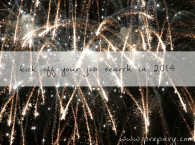One of my most popular services right now is interview prep. During these sessions I cover interviewing strategy for tough questions, conduct a mock interview, and give feedback.
When it comes to feedback I share, there are usually two buckets: what someone says and how they say it.
The truth is that your tone and communication style matter in an interview. You could be the most qualified candidate in the world, but if you can’t get that across in a way that resonates, you’re not going to get the job.
On this topic, many people wonder how formal or casual they should be in an interview — and how much they should be themselves vs. saying what they think the other person wants them to say.
Here are my thoughts on this topic:
Level of formality depends on the company
Similar to what I recommend when writing cover letters or networking emails while job searching, I think it’s important to pay attention to the company’s communication style before you go into an interview.
In really formal or serious environments, you should be a bit more buttoned up and but in fun or quirky, it will be important to let some more personality through.
I always recommend checking out how the company communicates with their customers on their website, advertising, and social media channels. This will give you a good indication of their vibe and culture.
That being said, even with the most seemingly casual companies, always remember that you’re in a job interview so things like cursing, chewing gum, and super laid-back body language are always off limits.
Be yourself (if you were having dinner with someone’s parents)
Show personality without fully letting your guard down. Be charming but not inappropriate. Basically, be yourself on your best behavior.
My view on this is that you don’t want to pretend to be someone else in an interview. If you do that and get hired it means you’re going to have to pretend to be someone you’re not every single day on the job, which would take an insane amount of mental energy.
However, being yourself doesn’t mean just letting yourself go and saying whatever comes to mind.
My rule of thumb is to pretend that you’re having dinner with a friend or significant other’s parents, which means you are yourself, but maybe just a bit more careful than usual.
Share your accomplishments, but check your ego at the door
You know how there are some people in your life that you feel you don’t need to go out of your way to impress because they just get you? Interviewers do NOT fall into that category.
It is up to you to make sure you interviewer walks away from your chat knowing your big strengths, accomplishments, and the value you could add if you were to join their team.
However, that doesn’t mean all decorum goes at the window and you can just ramble off a laundry list of all the reasons you’re better than everyone else. Framing is EVERYTHING when it comes to talking about yourself.
For example, saying “one thing I’m really proud of is that I’ve been able to close roles in an average of X days, which is significantly faster than the team average, without sacrificing candidate quality” sounds a lot better than “I’m by far the best and fastest recruiter on my team.”
It’s more polished, more results-oriented, and shows more humility.
Don’t share your deepest, darkest weakness or biggest mistake
Having conducted tens of thousands of interviews, I do think authenticity is critical in an interview. You don’t want to sound like a robot or convey that you think you’re perfect.
Answering more negative interview questions is part of most interviews. Do open up about key learnings, mistakes made, and areas you’ve worked on, but also keep your guard up.
When asked about a big mistake, don’t give your biggest. When asked about a weakness, don’t give one that you know is absolutely critical to the job… even if it’s the truth (though in that case, I’d consider why are you interviewing for that job to begin with).
Be clear, and share only the most relevant details
When you’re talking to someone who doesn’t know you that well, you need to explain things in a way that is really clear and not unnecessarily complicated. Err on the side of spelling things out and give plenty of examples to back up what you’re saying.
However, not all details are relevant details. For example, your interviewer likely doesn’t care about every internal nuance to your organization.
They simply want to know what you worked on, your results, and who you partnered with. Don’t pepper them with tons of details unless they help you to achieve your ultimate goal in some way.
Your goal in an interview is to prove you can do the job, do it really well, and do it in a way that aligns with the culture of the company and team you’re interviewing with. That’s it!
I hope this post helps you determine an appropriate, clear, and impressive tone and communication style before going into your next job interview.





